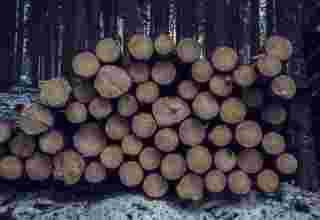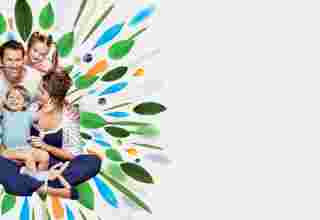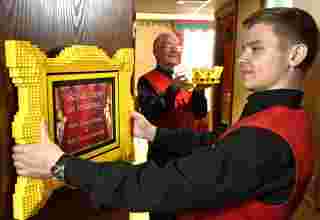A poll of 2,000 adults revealed they exercise an average of four times a week during summer, but this decreases during the colder months, with 31 per cent less active then than at any other time of the year.
Nearly three quarters (72 per cent) of those put the drop in activity down to the colder temperatures, with 57 per cent put off by the dark mornings and evenings.
Others admitted they find it more difficult to get out of bed during the winter (49 per cent), are worried about safety when exercising alone in the dark (27 per cent) and have less energy (24 per cent).
The spring and autumn months were the most popular time of year to get in shape, with 49 per cent wishing they could maintain the healthy mindset they adopt in warmer months across the cold, dark winters.
And more than a third live a healthier lifestyle generally in the summer compared to the winter.
Andreas Michaelides, Ph.D., chief of psychology, at Noom, the psychology-backed behaviour change programme, which commissioned the research, said: “For many, winter can play havoc with our intentions, causing us to exercise less or change our eating habits.
“Whether it’s the dark, the cold, stress, or tiredness, many external factors can impact our decision-making at this time of year.
“The data indicates that ‘hibernation mode’ kicks in for almost one in five of us, and we often lose our motivation to maintain our routines compared to the summer months due to barriers like the weather and holidays.
“Recognising how these internal and external factors impact you and your choices is just the first step to making truly informed decisions, enabling you to maintain a motivated mindset all year round.
“It’s also important to plan accordingly when you know you may experience situations that prevent you from achieving your health
-
Tech-savvy Gen Alpha children tend to choose screen time over spending quality time with their families during weekends and their free time from school.
May 21, 2024. Most families these days do not spend enough quality time together, due to t… -
ROSEY DAVIDSON, EXPERT SLEEP CONSULTANT & JUST CHILL BABY SLEEP FOUNDER, ANNOUNCES IT’S TIME FOR BED: THE PERFECT BEDTIME BOOK TO HELP LITTLE ONES DRIFT OFF TO SLEEP
Expert sleep consultant Rosey Davidson has announced the upcoming picture book It’s Time F… -
Vale of Rheidol Railway Festival of Steam – August Bank Holiday weekend
The Vale of Rheidol Railway is hosting a Festival of a Steam this coming August Bank Holid…
Load More Related Articles
-
Top 18 activities those with a physical condition struggle to do – including sleep
Millions of Brits are unable to exercise, sleep or endure long journeys in the car … -
Reimagined fairy tales – as read by comedian Ellie Taylor
Classic fairy tales have been reimagined to see Goldilocks finally get her comeuppance, Ja… -
Top 30 things over 65s do to maintain independence – including gardening
Retirees are determined to maintain their independence in later life, by dressing how they…
Load More By Entertain The Kids
-
Players of inactive sports like chess or video games can boost their performance levels – by exercising
An experiment saw 77 physically inactive mind gamers from 21 countries – who special… -
Brits admit they let their health slip over the summer – with diet, drink and stress to blame
A poll of 2,000 adults found a quarter consume more alcohol and 28 per cent have different… -
These are the top 10 babybel active living challenge tips
More than a quarter of adults believe they lead a sedentary lifestyle – with the ave…
Load More In Fitness
Comments are closed.
Check Also
Top 18 activities those with a physical condition struggle to do – including sleep
Millions of Brits are unable to exercise, sleep or endure long journeys in the car …





















